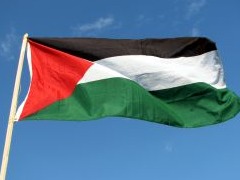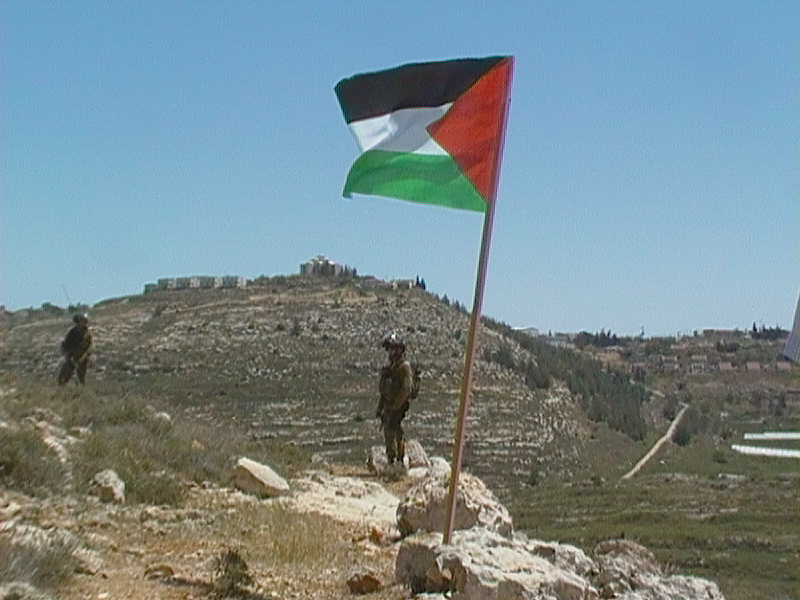Tag: Demonstration
-
Photo story: Al-Fwar refugee camp shows support for the political prisoners on hunger strike
25th May 2014 |International Solidarity Movement, Khalil team | Al-Fwar, Occupied Palestine On the 24th of May, approximately 40 protesters gathered at Al-Fwar refugee camp. The protest was to support the 5,000 political prisoners of whom more than a 180, are on their 30th day of hunger strike. The protest was successful in the sense…
-
Video: Protest on World Press Freedom Day: “They don’t consider Palestinian journalists to be journalists.”
3rd May 2014 | International Solidarity Movement, Ramallah Team| Occupied Palestine Yesterday, Saturday 3rd of May was the United Nations World Press Freedom Day. Yesterday, journalists celebrated, remembered, and protested, on a date commemorated worldwide since 1992. In Palestine, the 3rd of May calls for a protest by members of the Palestinian Journalists Syndicate (PJS), and yesterday this…
-
“A message of peace” from the village of Qaryut met with violence from the Israeli army
19th April 2014 | International Solidarity Movement, Nablus Team| Qaryut, Occupied Palestine The people of Qaryut began weekly demonstrations three weeks ago, due to the Israeli military’s decision to close the main road near to the village. Yesterday, the 18th April, approximately 300 from the village, of which 100 were children, decided to come to…



